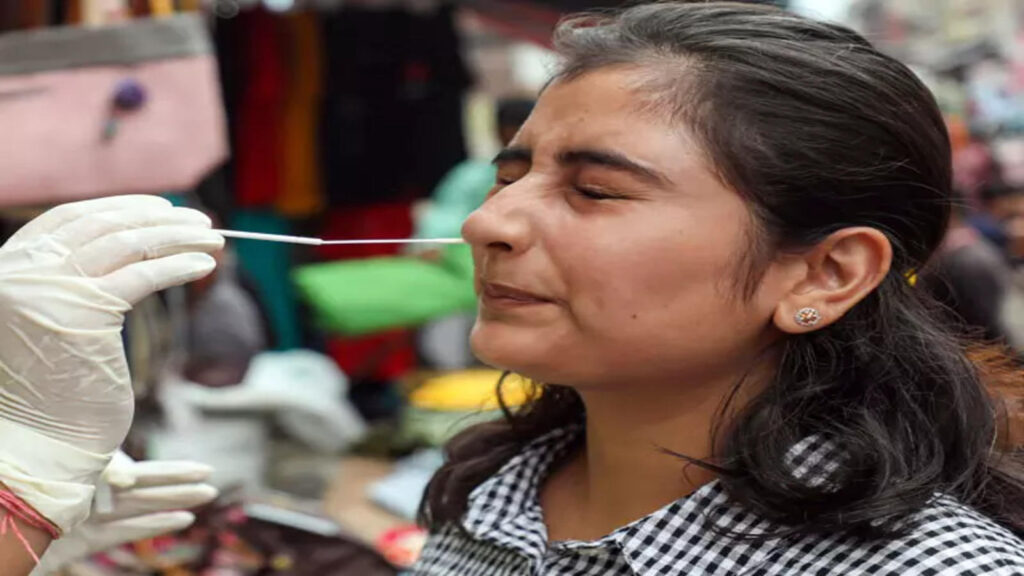Concern and attention alike have been sparked by the confirmation of 21 cases of the JN.1 Covid variant in India. JN.1 is now considered to be a variation of interest by the World Health Organization (WHO), different from its parent lineage BA.2.86. The global health organization notes that, according to available data, the overall danger posed by JN.1 is still minimal. Though the Union Health Ministry stresses the need for caution, experts quickly allay concerns by highlighting the infection’s mild nature and the efficacy of current treatments.
Goa presently has more COVID cases of the novel strain JN.1 than any other state.
In light of the growing number of COVID-19 cases in several regions of the nation, Health Minister Mansukh Mandaviya examined the COVID-19 situation and the readiness of public health institutions today.
According to a statement released today by the Health and Family Welfare Ministry, Mr. Mandaviya stated that it is critical to remain vigilant and ready for new strains of the coronavirus.
To guarantee effective COVID management, he requested seamless collaboration between the Center and the states. The Health Minister stated, “Let’s conduct simulated drills at the federal and state levels once every three months and exchange best practices.”
To develop an adequate public health response, the states must continue to monitor newly emerging evidence of COVID-19 cases, symptoms, and case severity. This was brought up by the Health Minister in a reminder to the states.
In a presentation on the domestic and international COVID situation, Health Ministry Secretary Sudhansh Pant stated that the number of cases in India is far lower than the global total. However, there has been a sharp increase in active cases over the last two weeks, from 115 on December 6 to 614 today.
According to Mr. Pant during the presentation, of these, 92.8% of the cases are home-isolation, suggesting minor illness, and there hasn’t been a rise in hospitalization rates as a result of COVID-19. The Health Secretary stated that the hospitalized cases are the result of various medical issues and that the discovery of COVID-19 is coincidental. Karnataka, Kerala, Maharashtra, and Jharkhand have all shown an increase in the daily positive rate. The number of confirmed cases per 100 tests is known as the positivity rate.
An advisory from the Karnataka Health Commissioner D Randeep’s office stated that all elderly people (60 years of age and above) who are comorbid (especially with kidney, heart, liver, etc.), pregnant women and nursing mothers should wear face masks when they are outside and should strictly avoid going to closed, poorly ventilated, and crowded areas.
The Covid-19 state technical advisory committee’s recommendations from a meeting on December 17 were the basis for the advice’s release.
The general public is advised to take precautionary measures in light of the current COVID-19 situation in the nation, the emergence of the JN.1 sub-variant in neighboring states of Kerala and Tamil Nadu, the ongoing winter, and the anticipated crowding, especially in close quarters during the year-end and New Year’s festivities, the advisory said.
According to the instructions, anyone experiencing respiratory symptoms like a fever, cough, cold, or runny nose should contact a doctor as soon as possible and wear a facemask to cover their mouth and nose.
To reduce the number of COVID-19 cases, the state health agency has implemented several preventative strategies.
It has reassured the public not to panic and stated that there was no imminent need to impose limitations to increase cross-border (between Tamil Nadu and Kerala) surveillance.
Nonetheless, the administration has emphasized that all districts that border Kerala and Tamil Nadu must exercise caution, guarantee proper testing, and promptly report any occurrences of COVID-19.
